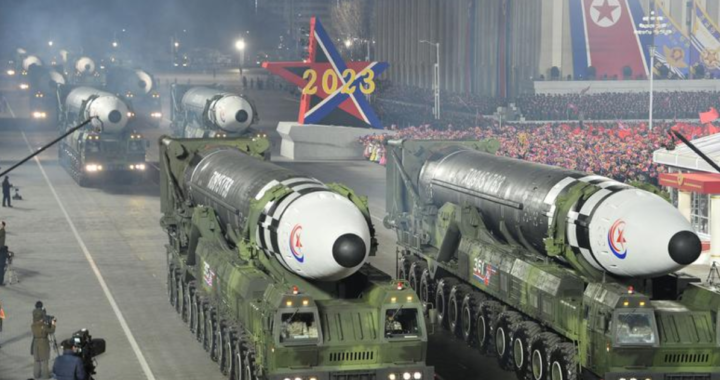
Weekly Recap: Feb 20 to Feb 26
Feb 27: The death toll from the Turkey-Syria earthquakes exceeds 50,000, G20 members push for collective cryptocurrency regulation, Israeli and Palestinian officials agree on measures to curb violence in the West Bank.

Feb 27: The death toll from the Turkey-Syria earthquakes exceeds 50,000, G20 members push for collective cryptocurrency regulation, Israeli and Palestinian officials agree on measures to curb violence in the West Bank.

Democracy is once again in decline, many have cried. But the implications of the trial go beyond simply Hong Kong. Instead, it’s what these trials represent that should be given serious thought – the challenge to long-held liberal ideas of capitalist democracy.

Feb 20: Israel passed a new law allowing authorities to revoke the citizenship and residency of Palestinians, US denounces Russia, saying that they have been “formally determined” to have committed crimes against humanity, The UN announced $250 million (S$334.3 million) in crisis funding to respond to several crises around the world.

The subject of population and overpopulation has been a perennial hot topic among the public and the academic community. With the recent reports of China’s population decline, the question about its overall impact — whether it’s good or bad — has surfaced. Economists say that it’s an impending economic disaster. Others argue a population decline is what’s needed to overcome a degrading environment and a lack of resources. With these narratives in mind, what will the future look like for countries like China?

Feb 13: North Korea features new weapons in parade celebrating 75th founding of its army, Barcelona temporarily breaks off ties with Israel over policy towards Palestine, Philippine President Ferdinand Marcos Jr and Japanese Prime Minister Fumio Kishida agree to increase defence ties

US Military shoots down suspected Chinese spy balloon
Half a million British workers go on strike to demand better pay and working conditions in biggest strike in a decade
Philippines strikes deal to strengthen US military presence in the country

In today’s conflicts, the use of combat drones has become ubiquitous across most military forces. While they offer advantages in terms of efficiency and reduced military risk, these drones still lack international regulation — raising concerns about their potential abuse and threat to civilian lives. How can we promote greater transparency and accountability for the use of combat drones? Can we meet the challenges posed by this evolving technology?